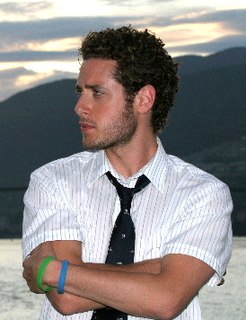A Quote by Annette Bening
Sometimes people don't rehearse at all, but you might have had a chance to rehearse for a few days, or even more than that. Then in the moment when the camera's running is the only time it matters. So whatever you've discussed or thought about or discussed with the director, the other actors, hopefully there's a part of the experience that you've left open so that only in that moment the camera catches it. That's of course the hardest thing to do because everything is planned and you have thought about it in advance.
Quote Topics
About
Actors
Advance
Because
Camera
Chance
Course
Days
Director
Discussed
Even
Everything
Experience
Few
Had
Hardest
Hardest Thing
Hardest Thing To Do
Hopefully
Left
Matters
Might
Moment
More
Only
Only Time
Open
Other
Part
People
Planned
Rehearse
Running
Sometimes
Than
That Moment
The Hardest Thing
Then
Thing
Thought
Time
Whatever
Related Quotes
I ask my assistants if they're retarded all the time. When the camera is on you, of course, actors have the ability to make it real. For me, if I'm not talking, it is a problem. I have so much more respect for actors after being in front of the camera, and I realize that the hardest part is when you're not talking. Listening is harder than just acting. Listening is the hardest part.
In theater, you get to rehearse several weeks, you memorize everything, and by the time you open, you know what the play is. In film, it's almost the opposite. You do your work on your own and maybe have a couple of minutes to rehearse. When the camera rolls, you generally don't know what's going to happen.
To go into more specifics regarding actors, whether they're from Korea or the U.S., all actors know if they are loved by the director. When they feel that love from the director, they respond by giving a great performance on camera. Also, everyone on set - the crew, the actors - they were aware of the film's message and its broad theme, so these big issues were never discussed on set.
One of the good thing about theater in the states, is that the playwright we do have a say, especially in the beginning, when the play is being discussed around the table. We talk about the play, and the actors listen, and there have been cases, you disagree on something... I mean, actors don't usually tell you what they're going to do, they do it. Of course, you try to speak with the director and say, "Is there any way you can bring this actor to do something different?" You try as much as you can, but then, you also have to be open to interpretation.
Unless, of course, there's no such thing as chance;...in which case, we should either-optimistically-get up and cheer, because if everything is planned in advance, then we all have a meaning and are spared the terror of knowing ourselves to be random, without a why; or else, of course, we might-as pessimists-give up right here and now, understanding the futility of thought decision action, since nothing we think makes any difference anyway, things will be as they will. Where, then, is optimism? In fate or in chaos?
With photography, everything is in the eye and these days I feel young photographers are missing the point a bit. People always ask about cameras but it doesn't matter what camera you have. You can have the most modern camera in the world but if you don't have an eye, the camera is worthless. Young people know more about modern cameras and lighting than I do. When I started out in photography I didn't own an exposure meter - I couldn't , they didn't exist! I had to guess.
A sitcom, you rehearse for four days of the week and then you shoot it all in one night in front of a studio audience. It's like a play every week, you just shoot it over a seven or eight-day period with a single camera. I enjoy this format of show much more. I'm a feature guy. I like making movies. So the four camera thing I didn't love it that much. I found myself slightly out of my element.
The Iranian government has become pretty open about the drug problem in recent years. Opium use is a very traditional, cultural thing in Iran, so the government is actually more open about it than they are about some of the other ills in society. They just don't want to talk about things that might relate to a Western lifestyle even though they know that Iranians indulge. Because there is no real public life left in Iran - people go and have dinner and then everything retreats behind these Persian walls.
The first thought is always about making the playoffs. That's the tough part. And once you get there, only then you can allow yourself to start thinking how you are going to play in the playoffs against other teams. And a lot is left to chance then. There's an element of luck as well: sometimes you get lucky, sometimes you do not.
I used to pre-rehearse everything and then bring my pre-rehearsed performance to the set. Now, I'm learning to let it happen in the moment. American actors are much better at that than British actors. If I knew how to trust myself, I would have been much more relaxed. Maybe I would have less gray hairs today.
Take a look at the current debates in Washington, and of course, everything in the media. Only one issue is discussed: the deficit - the least significant issue, but the most significant issue for the banks. The big problem, joblessness, is barely discussed, even though that's what the public wants, as polls clearly show. That's even what the business press supports, but the financial institutions are so powerful that the only issue is the deficit, and this runs right through the intellectual culture.



































